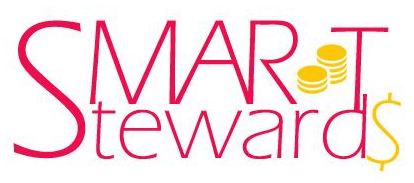Day 64/70: TEACH YOUR CHILDREN ABOUT MONEY.
Let’s get straight to the point.
Someone or something will teach your child about money.
Their peers, society, social media, or the hard knocks of life
How did you learn about money (management and multiplication), and when? How would you rather they learn about money?
As a member of our community, let’s test if what you’ve learned has rubbed off on your children in any way.
Ask your children how they will spend N50,000, $50, £50 or any amount in your currency if they receive it as a Christmas gift.
Their response will show you whether the lessons you have been learning at Smart Stewards have been effective or not. If you feel disappointed, you are either not practicing them yet or not showing them yet.
You may share your answer with your accountability partner.
Educating children (yours and any young person you are privileged to mentor) about money is a crucial part of parenting because it can help them build sound money habits and decide how to spend, save, and invest their money from an early stage.
The following ideas will help you teach your kids about money.
1. Lead by example: It is crucial to set a positive example for your children when it comes to handling money. They are watching you even without your teaching them. Make a concerted effort to generate learning opportunities from your financial circumstances. This covers practices like setting aside money for savings, how you plan your money, sticking to your list when you go to the store, and paying off debts on time (if you have any).
2. Please show your children the soft side of life when you can afford it. It is not every time you should sing the line, “There’s no money.” When you get your financial breaks, give them a treat, and even when you don’t have as much as you desire, don’t forget to teach them from the learning moments of your financial seasons.
3. Start young: Children can learn about money as soon as they are able to comprehend fundamental ideas like counting and knowing the worth of various coins and bills. Have you discussed the new Naira notes, the impact of the cashless policies the CBN has come up with, what is happening with the Ghanaian economy, the new notes that have King Charles’ picture on them, and whatever economic issues are prevalent in your country?
4. Encourage your kids to save by telling them to set aside a percentage of their allowance or other money they get. This will help them form the habit of saving early enough. Follow through on this, with the purchase of a piggy bank or a bank account opened in their name. Please stop keeping their money in your own account.
5. Give your children an allowance or money to help them build their money management muscles. By giving them money, you will be able to teach them about budgeting, saving, investing, and how to make decisions with it.
6. Educate your children on the importance of differentiating between necessities and wants: Let them see the reason they need to distinguish between things they want and things they need, such as food, educational materials from toys, and video games.
7. Talk to your kids about the importance of working smart and hard. Money grows on trees, but not in the way they imagine it. Money grows on the tree of hard work. Let them know that money is earned by providing value and that they can earn more of it by working longer and smarter, or taking on more tasks.
8. Talk to them about the power of investments and compound interest. You can start teaching your children about investing and money management at a young age, and as they get older, they will understand how to manage their resources wisely.
9. Encourage them to be givers. Show them what your charitable giving plan looks like, and encourage them to give a percentage of their allowance or other funds to a charitable cause and to the underprivileged and whatever deficient areas in the community they can support.
10. Teach them about smart stewardship.
You can’t know how to teach your children financial literacy if you are financially illiterate yourself. Become a smart steward today and embrace the tools and resources that can help you. Get them into our community, where we teach financial literacy specifically for children. But first of all, you start your own financial journey to becoming a Smart Steward.
Summarily, the key to teaching kids about money is to get them involved early and consistently. You should commit to preparing your children for future success by instilling sound financial practices in them.
Sola Adesakin



